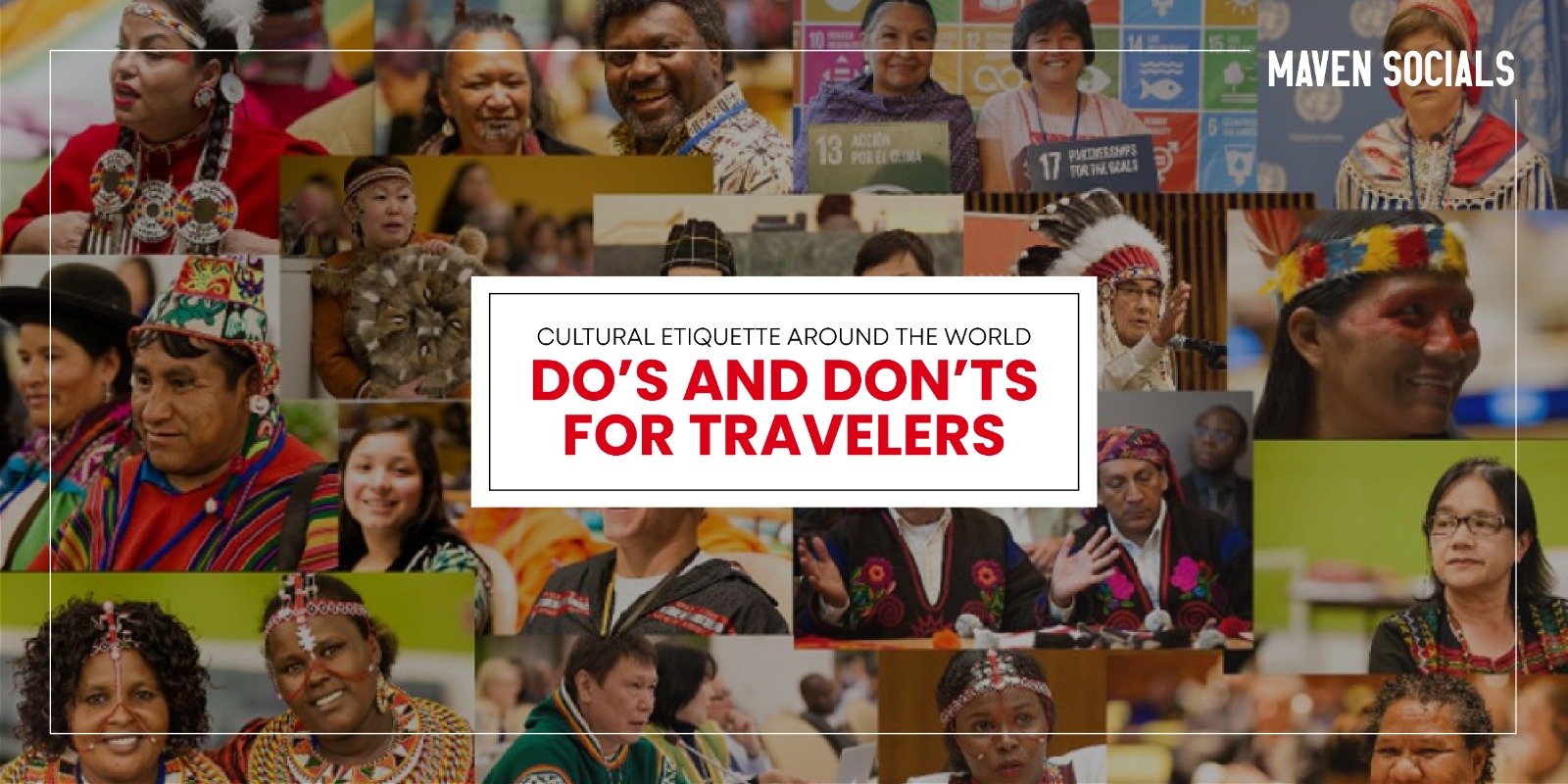Ignoring local customs can result in misunderstandings, awkwardness, or even offending someone unintentionally. More importantly, when you show cultural sensitivity, people often respond warmly and are more open to engaging with you. It builds trust, helps you make meaningful connections, and creates more authentic travel experiences.
Whether you are visiting a bustling Asian market, dining at a European café, or stepping into a Middle Eastern home, etiquette shapes how you are perceived. Let’s explore specific practices by region.
Asia: Respect and Rituals
Japan – Subtlety and Politeness
- Do: Bow when greeting. A slight bow shows respect, and the deeper the bow, the greater the respect.
- Do: Remove your shoes before entering someone’s home, temples, or even some restaurants. Slippers are usually provided.
- Don’t: Tip in restaurants—it is seen as rude. Instead, express gratitude by saying arigato gozaimasu.
- Don’t: Stick chopsticks upright in rice—it resembles a funeral ritual.
India – Tradition and Sensitivity
- Do: Greet with a “Namaste,” palms pressed together. This is widely appreciated.
- Do: Dress modestly, especially when visiting temples or rural areas.
- Don’t: Point your feet at people or religious objects. Feet are considered unclean.
- Don’t: Touch someone’s head—it is seen as sacred.
China – Hierarchy and Respect
- Do: Hand over business cards or gifts with both hands.
- Do: Try local dishes offered to you—it’s a sign of respect to the host.
- Don’t: Write names in red ink; it symbolizes death.
- Don’t: Discuss politics or criticize the government.
Thailand – The Land of Smiles
- Do: Show respect to the monarchy—insulting the king is a serious offense.
- Do: Greet with a “wai,” placing your palms together in front of your chest.
- Don’t: Touch someone’s head or point with your feet.
- Don’t: Raise your voice—it is frowned upon.
Middle East: Hospitality and Traditions
General Etiquette
- Do: Accept hospitality graciously. Turning down food or drink can be seen as impolite.
- Do: Dress conservatively in public, especially in places like Saudi Arabia or Iran.
- Don’t: Use your left hand to eat, shake hands, or give gifts. The left hand is considered unclean.
- Don’t: Public displays of affection are often unacceptable.
United Arab Emirates
- Do: Learn a few Arabic greetings such as As-salamu alaykum (peace be upon you).
- Do: Show respect when visiting mosques—dress modestly and women may need to cover their hair.
- Don’t: Take photographs of people without permission, especially women.
- Don’t: Drink alcohol in public—it is only allowed in licensed venues.
Europe: Formalities and Manners
France – Elegance and Politeness
- Do: Greet with a polite “Bonjour” before starting any conversation.
- Do: Learn basic French phrases—locals appreciate the effort.
- Don’t: Rush through meals. Dining is an important social experience.
- Don’t: Loud behavior in public is frowned upon.
Italy – Warmth and Passion
- Do: Dress well—Italians value style and presentation.
- Do: Enjoy meals slowly, savoring each course.
- Don’t: Order cappuccino after 11 a.m.—it is considered a breakfast drink.
- Don’t: Touch produce at markets; vendors prefer you let them handle it.
Germany – Punctuality and Order
- Do: Arrive on time—punctuality is highly valued.
- Do: Follow rules, whether it’s crossing the street or recycling.
- Don’t: Jaywalk or ignore traffic signals.
- Don’t: Toast without making eye contact—it’s considered bad luck.
Spain – Relaxed but Social
- Do: Embrace late dining—dinner often starts around 9 or 10 p.m.
- Do: Expect small talk before business discussions.
- Don’t: Assume everyone speaks English—learn some Spanish basics.
- Don’t: Tip excessively; rounding up the bill is sufficient.
Africa: Community and Respect
South Africa
- Do: Be mindful of cultural diversity—there are 11 official languages and many traditions.
- Do: Greet people with a handshake, sometimes followed by a hug in casual settings.
- Don’t: Compare the country directly with other African nations—South Africans are proud of their unique identity.
- Don’t: Use derogatory or racial terms—it’s deeply offensive.
Morocco
- Do: Dress modestly, especially in rural areas and religious sites.
- Do: Haggle politely in markets—it’s part of the culture.
- Don’t: Refuse mint tea—it is a symbol of hospitality.
- Don’t: Publicly criticize religion—it is not acceptable.
The Americas: Friendliness and Diversity
United States
- Do: Respect personal space—standing too close can feel intrusive.
- Do: Tip generously in restaurants (15–20% is expected).
- Don’t: Assume everyone has the same political or cultural views—it’s a diverse nation.
- Don’t: Cut lines—waiting your turn is important.
Brazil
- Do: Greet with cheek kisses or handshakes, depending on the situation.
- Do: Enjoy lively conversations—Brazilians are expressive and warm.
- Don’t: Show frustration if things run late—punctuality is flexible.
- Don’t: Wear green and yellow (the national colors) unless it’s a football event; it can seem over-patriotic.
Mexico
- Do: Use formal titles when addressing someone until invited to use first names.
- Do: Try the local food—it’s a point of pride.
- Don’t: Throw money on the counter—it’s considered rude.
- Don’t: Be overly concerned with punctuality; arriving late is socially acceptable.
Australia & Oceania: Informality and Openness
Australia
- Do: Embrace casual greetings like “G’day” or “How’s it going?”
- Do: Respect the outdoors—Australians are protective of nature.
- Don’t: Boast or exaggerate—humility is appreciated.
- Don’t: Disrespect Aboriginal culture—acknowledge its significance.
New Zealand
- Do: Respect Māori traditions—learn greetings like Kia ora.
- Do: Show courtesy in outdoor spaces, as Kiwis are proud of their natural environment.
- Don’t: Confuse New Zealanders with Australians—they have distinct identities.
- Don’t: Litter or ignore conservation rules.
Practical Tips for All Travelers
- 1. Learn basic greetings in the local language. A few words can go a long way.
- 2. Observe before acting. See how locals behave in public and follow suit.
- 3. Respect religious sites. Dress appropriately, follow rules, and avoid disruptive behavior.
- 4. Avoid sensitive topics. Politics, religion, and history can be touchy subjects in many places.
- 5. Be open-minded. What seems unusual to you may be normal for others.
Final Thoughts
Traveling respectfully is about more than just seeing the world—it’s about engaging with it mindfully. When you adapt to cultural etiquette, you show genuine appreciation for the people and traditions you encounter. This not only helps you avoid misunderstandings but also makes your journey more rewarding.
So, the next time you pack your bags, remember: respect is the universal language that transcends borders. By practicing cultural awareness, you’ll not only be a better traveler but also a bridge between different parts of the world.












